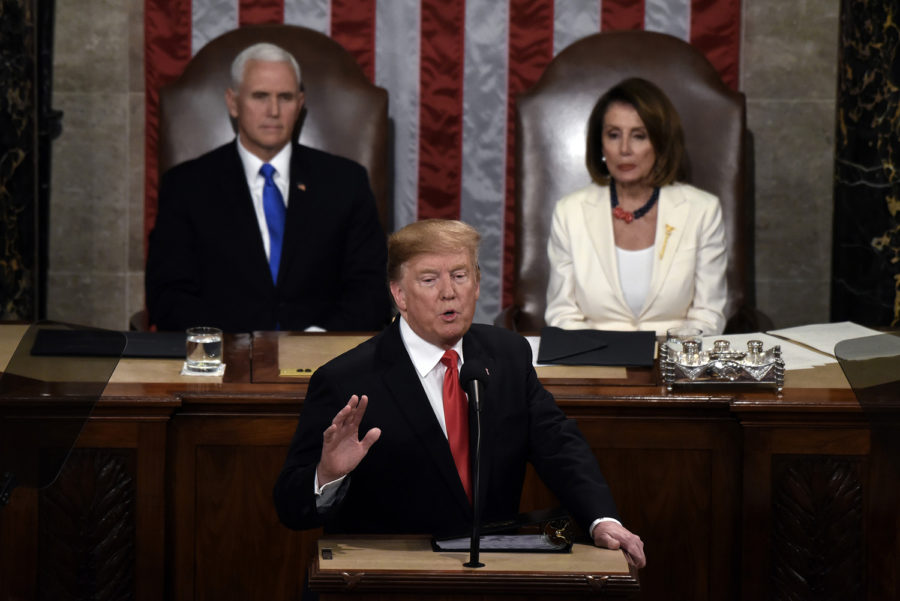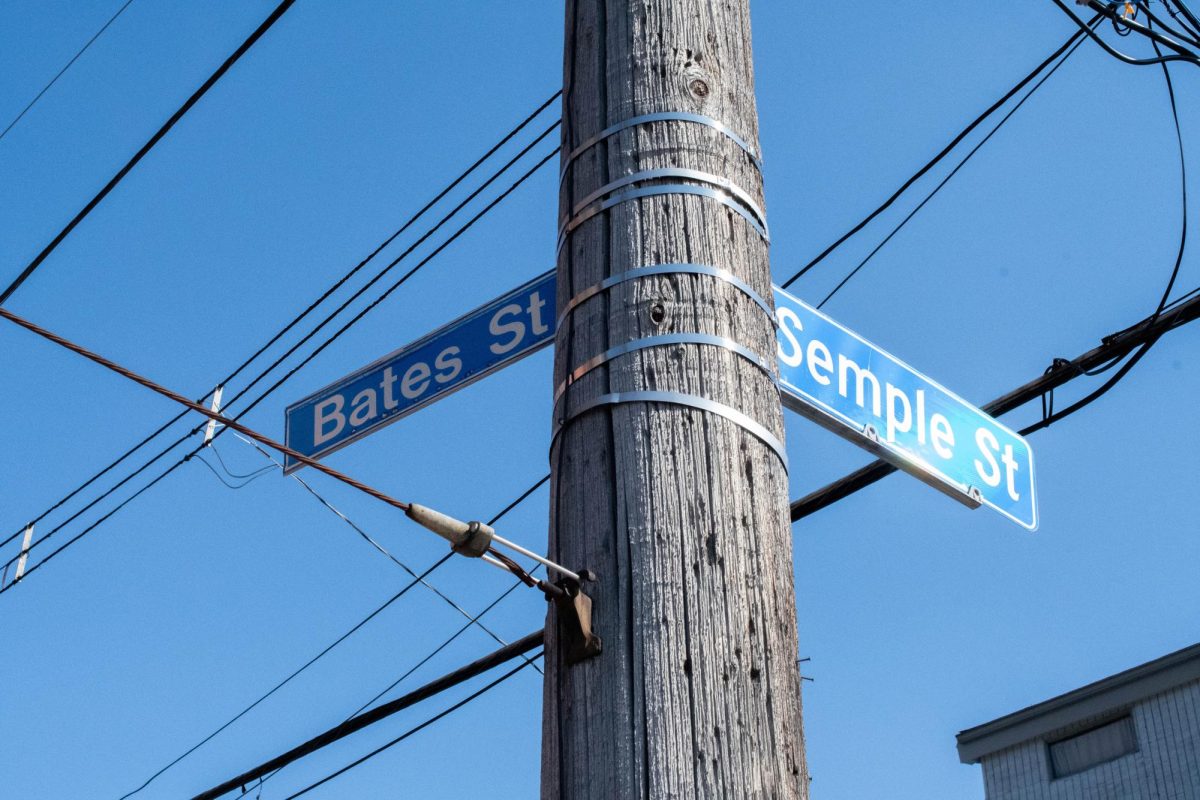Editorial: Trump defies bipartisanship for border fiction
President Donald Trump delivers his State of the Union address to a joint session of the Congress on Capitol Hill in Washington, D.C., on Tuesday, Feb. 5.
February 6, 2019
Trump’s State of the Union address touched on significant national achievements like the record number of women in Congress and criminal justice reform while condemning the anti-Semitic mass shooting last fall in Pittsburgh. But his constant use of dangerous border security rhetoric sharply juxtaposed those gains. Despite the triumphs made in the last year, Trump’s address only further displayed eagerness to use falsehoods to stoke fear and xenophobic anger to accomplish his political ends.
“As we speak, large organized caravans are on the march to the United States … I have ordered another 3,750 troops to our southern border to prepare for this tremendous onslaught,” he said, later adding that “year after year, countless Americans are murdered by criminal illegal aliens.”
Trump’s xenophobic misrepresentations of American-bound migrants are nothing new, part of a long trend of exaggerating the threat posed by immigrants. In his fear mongering, he deliberately neglects to mention that most individuals arrested by ICE are guilty of immigration-related offenses rather than violent crimes and that immigrants commit crimes at lower rates than American-born citizens.
Trump’s real-world examples of border barrier successes were also deeply flawed. He held up the border city El Paso as a stunning success of crime reduction that would follow the construction of a wall, but a closer look at crime trends and El Paso law enforcement offer a different story.
“The border city of El Paso, Texas, used to have extremely high rates of violent crime, one of the highest in the entire country, and considered one of our nation’s most dangerous cities,” he said. “Now, immediately upon its building, with a powerful barrier in place, El Paso is one of the safest cities in our country. Simply put, walls work and walls save lives.”
El Paso’s crime rate fell between 1993 and 2006 by more than 34 percent — but it wasn’t because of a wall. Construction of a border barrier did not start until 2008 and from 2006 to 2011, the number of recorded violent crimes in El Paso increased by 17 percent.
Former El Paso Police Chief Russ Leach told the El Paso Times in 1997 that credit for the drop in crime should go to city residents.
“It’s not the police, and it’s not the conditions in the community. It’s the people,” he said.
Trump also railed against illicit drugs moving through the border — but the majority of illegal narcotics don’t move through the areas where Trump’s wall would be built. Most drugs are smuggled through legal ports of entry where a wall would have no effect, including the recent widely shared seizure of fentanyl and methamphetamine at the Mariposa Port of Entry in Arizona.
Trump had an incredible opportunity last night to make good on his promise to urge bipartisanship through honest cooperation. But his arguments for his border security agenda are anything but honest.
The state of the American union in 2019 deserves commendation for achievements Trump mentioned: the record number of female representatives, job creation, criminal justice reform and more. But Trump’s border rhetoric steeped in violence is a constant reminder of his willingness to double down on American fear.



